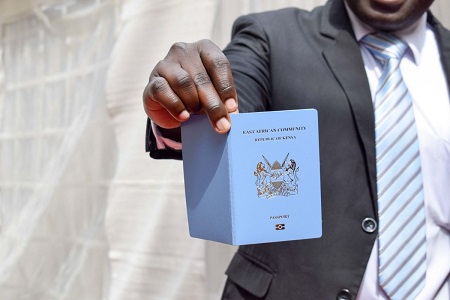The first batch of electronic passports has arrived in the country ahead of issuance in January 2019.
Uganda is set to migrate from the current machine-readable passports to electronic passports as per the East African Community protocol.
And on Tuesday, the Internal Affairs minister, Gen Jeje Odong received the first batch of 24,000 e-passports, which he said are more secure and user-friendly.
“The difference between the electronic passport and the ordinary passport is that the electronic one has an electronic chip where the bio-data on the passport is stored for security measures if you try to tamper with the original passport,” he said.
Must read: National ID data to be used to process new e-passports
Gen. Odong added that new electronic passports have enhanced security features, including an electronic chip, which stores the bio-data of the holder which can be verified from an entry border point to ascertain whether it is a genuine passport.
Asked what happens to the old passports, he said they are still valid for two years but whoever feels like replacing the old passport they are currently holding, is free to change to the electronic passport using the normal procedures of acquiring a passport.
Asked why passports are still required for travel within East African countries and yet the East African community is considered a free trade area, he said East African residents with national identity cards can present them at the border checkpoints to access other countries because those are national travel documents adding that the diplomatic passports and the official passports will maintain their original colors but will only have enhanced security features on the electronic passport.
In the East African Community, Kenya, Tanzania, Burundi, and Rwanda are already issuing e-passports.
Related:
Flutterwave: Why we set up shop in Uganda
E-voucher system to help farmers access inputs, market

